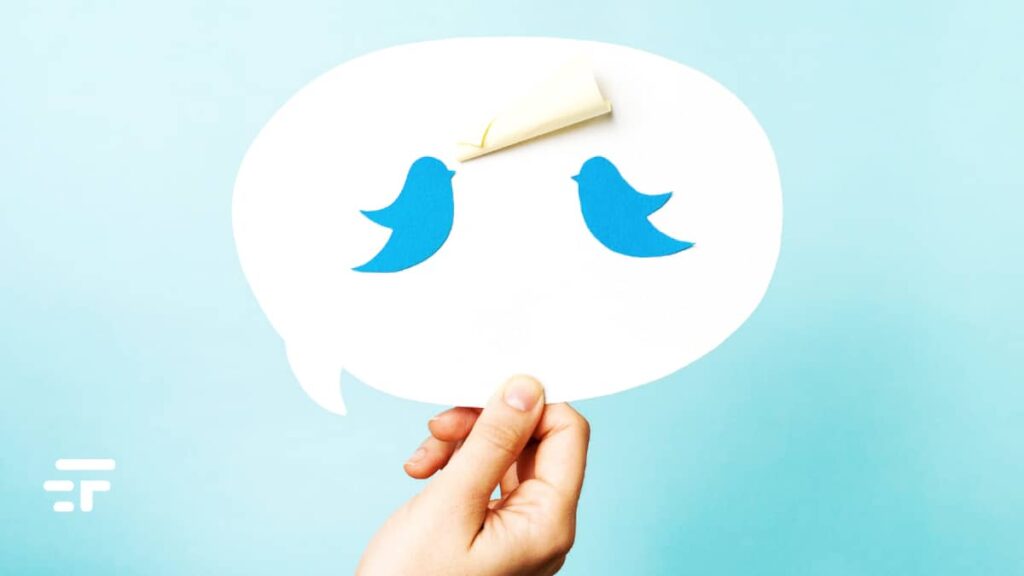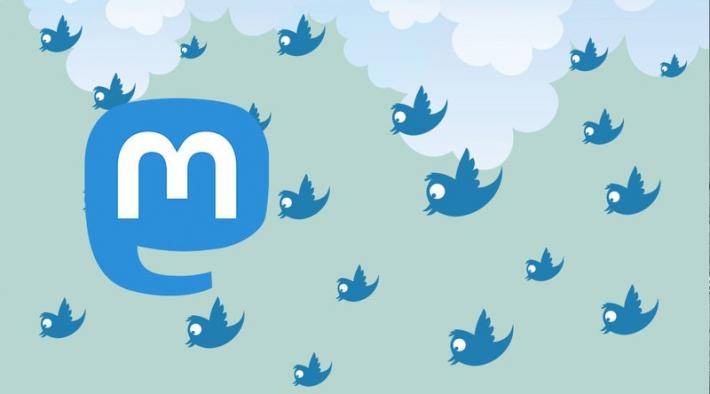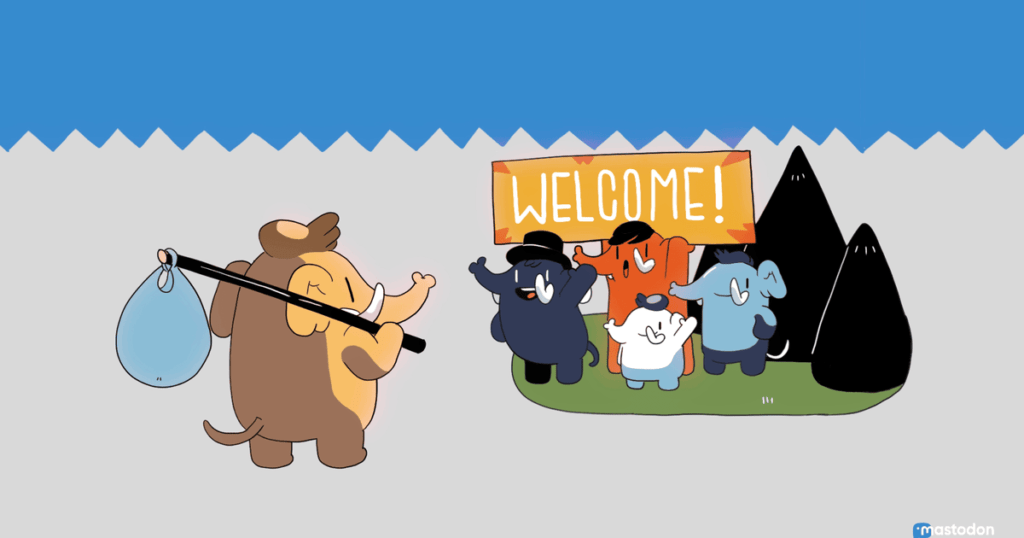It may be the time of the post-pandemic transition, but I have the feeling that the word "viral" will annoy many. Is this one of the causes that lead to the growth of Mastodon? After all, the "new" social network was designed precisely to avoid the extreme dynamics, bordering on the pathological, that govern other social networks such as Facebook or Twitter.
Already. Because Mastodon isn't just an alternative to Twitter: it's an “antiviral” alternative to attention leeches.
An incentive to create and share. For real.
The absence of "Pavlovian" gratification mechanisms (the sea of likes, "popular" posts and other trinkets) has a first, important side effect: it encourages people to communicate and be creative.
Without constantly thinking about "how many likes will this content get, will I have a large audience?". Because this is it: the algorithms of "traditional" social networks were designed to capture attention by "forcing" people to stay, so as to reach them with advertising. In essence, they have distorted user behavior, creating a world of people making content designed to be operationally theatrical, or angry, to elicit reactions.
The word “Viral”, once again, signals a disease. This is why an "Antiviral" social network like Mastodon is experiencing a boom.

Mastodon is a place where people can post their thoughts without letting them enter into an exhibitionist, social manipulation, egotic mechanism. It wasn't born yesterday: this “social” software has been here for several years. But never before has it seen a significant growth in audience and trust, in some way it represents a litmus test of user needs.
In fact, more and more people have the feeling of having to get out of the "hamster wheel" in which social media has placed them. And today the best antiviral "therapy" has the shape of a purple elephant. For many reasons, one above all: slow down the pace a bit. Calm things down a bit.
We need it.
Meanwhile Twitter
Let's take the platform just bought by Elon Musk. Many things could change in the coming times (we certainly won't be bored), but today that social network has become a container of "popular" tweets/jokes/memes/characters at the moment, so that users can see what's trending. Most of its functions push users to watch new or famous content en masse: hashtags go crazy providing sudden peaks of attention towards "musts" to see or discuss, often argue about.
These waves of popularity come and go, depending on the topic. But they usually sell out quickly because the design also needs to produce a new moment that captures everyone's attention. That feeling of “wow, I'm talking about the same thing as all these people”? This is Twitter's emotional goal with its design. Virality is its driving force.
A significant number of Twitter users now find these "compelling" viral waves to be the only purpose for frequenting the social network. Without these elements, it wouldn't be there.

How is Mastodon antiviral
If we want to reduce the crucial differences between platforms to the bare minimum, Mastodon has two big ones that differentiate it from all other social networks.
First: no quotes – On Mastodon it is possible to retweet a post (they call it “boosting”), but it is not possible to add your own comment. In other words, you cannot "quote". Why not?
Because the creator of Mastodon feared (probably rightly) that this system would too often encourage the publication of provocative posts, of the "look at this bullshit" type. And the first Mastodon community didn't really like these dynamics.
If a short-lived social network has no quoted tweets, it slightly inhibits viral waves. Individual statements are just a little less likely to suddenly become a viral wave. This is the paradigm of an "anti-viral" design.
Second: no rankings – Another factor to consider: Mastodon does not algorithmically rank posts based on popularity, virality, or content. The Twitter algorithm creates a "rich-get-richer" effect: When a tweet goes slightly viral, the algorithm notices it, highlights it in users' feeds and makes it grow out of all proportion: like a tidal wave.
On Mastodon, however, the posts arrive in reverse chronological order. Point. Nothing else. What if you're not looking at your feed when a post comes in? You will lose it. End. Again, this is a profoundly antiviral design choice.

The antiviral one is a different cultural model
Aside from the "technical" factors that make it different, what is perhaps even more important about Mastodon's design is the behavior it introduces to its user base. People who have been using it forever (i.e. for 6 years) have literally created an antiviral culture. They oppose functions and attitudes that promote virality. They prefer slowness to speed.
For those accustomed to the world of Twitter, where speed and “herd” behavior are common (and valued by many people), it may seem strange to encounter a culture that finds friction useful and productive; a feature, and not a flaw. It's a subtly different place. Less mass, even if it will have many subscribers. Less shouting.
This is one reason why Mastodon will never be a full-fledged replacement for Twitter.
And it won't destroy it
The advent of Musk could send Twitter into bankruptcy (this is a hypothesis put forward by the tycoon himself in his emails to employees), but it could also make it experience a new boom. Twitter could find a balance between profit and virality: after all these dynamics are harmful, but they have also brought social and civil issues to the attention of the general public (I'm thinking of Black Lives Matter).
Not only that: Mastodon's antiviral footprint could reduce the number of people who want to use it. Guys with an "addiction" to the excitement of Twitter feeds would find Mastodon unattractive and banal by comparison. Where are the trends? What are we talking about today?

The Diaspora
This “confusion” of new users arriving and they are flocking Mastodon is already creating some problems with long-time users. The new arrivals are trying to use the platform the way they have always used Twitter: cheerfully promoting themselves, hunting for "likes", posting lapidary comments from arrogant "beaters" and tirades of controversy.
It's not all their fault: it's the fault of those who taught them to behave in certain ways. To constantly hunt for likes and retweets/boosts. To promote yourself. To perform. And now, to bring this form of "mental approach" to the new platform.
How will it end? Will Mastodon remain antiviral?
It is possible that the influx of newcomers will reduce. That new users leave "disappointed", returning to the amusement park of tweets and arguments between Musk's little bird and Zuckerberg's 'square'.
Or perhaps the new mass of users will stay and change the culture of Mastodon by making it a “hybrid”, increasing its virality a bit. The system is made in such a way that a single Mastodon server can also change its rules, focusing more on the virality of the contents. This doesn't force everyone else to do it, but it may affect them.
Mastodon's success could, in other words, make it "popular", and less antiviral. Who can say? In any case, the next phase of Mastodon will be interesting.
(By the way, we've been there since 2021: @near future ... if you're on Mastodon, connect and say hello, so we can have a chat).


